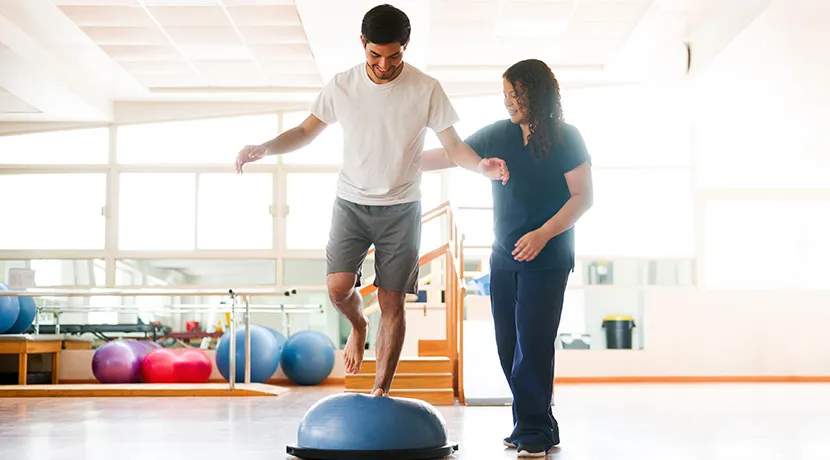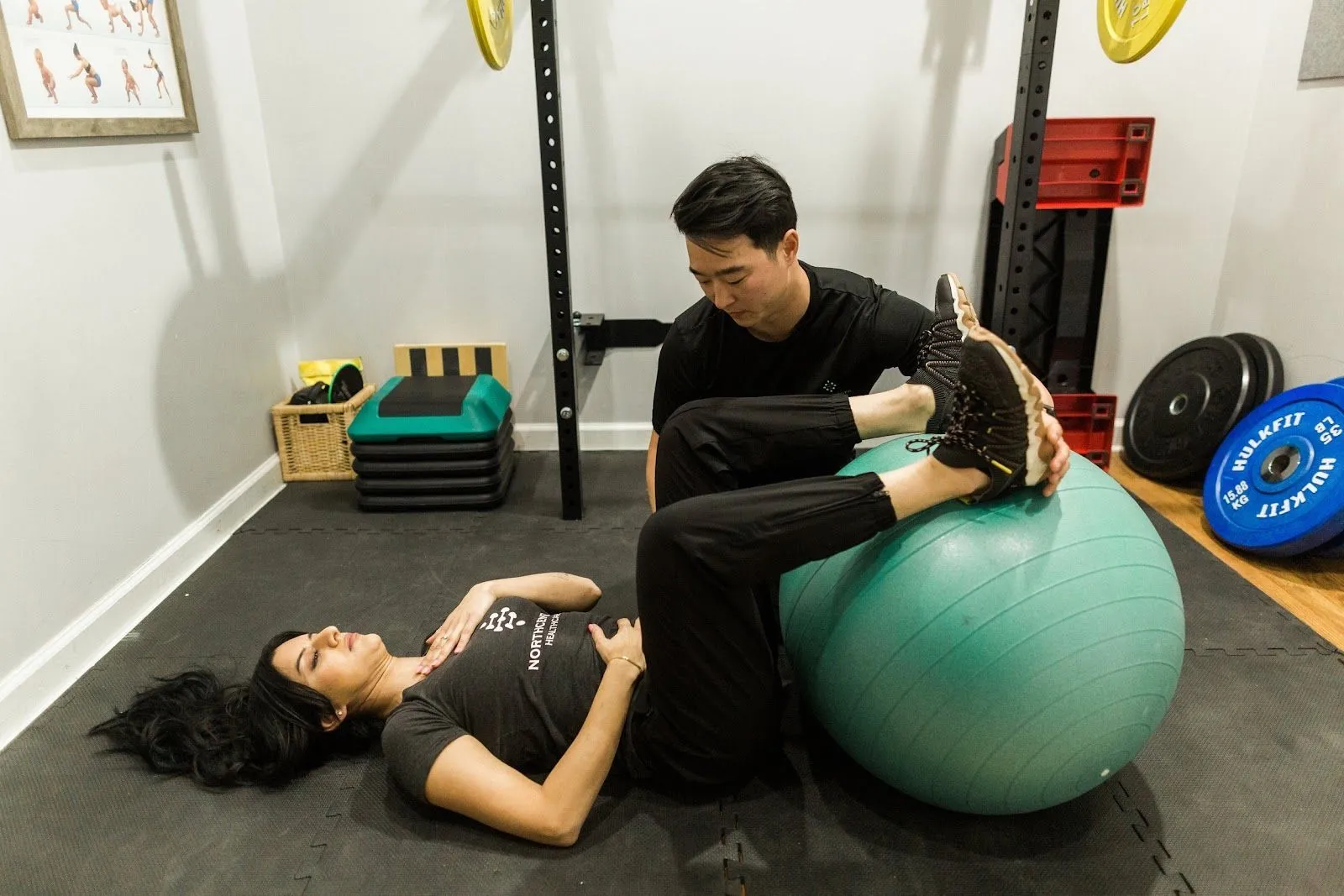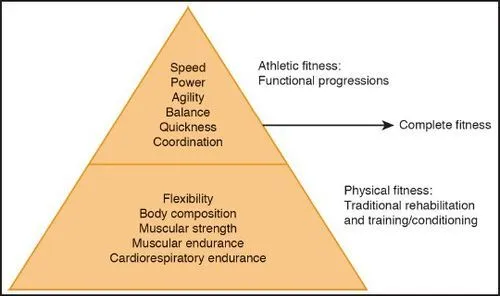
Functional rehabilitation plays a crucial role in the overall recovery and well-being of individuals dealing with various health conditions and injuries. From improving physical function and mobility to preventing future injuries, the benefits of functional rehabilitation are vast and impactful. In this blog, we will delve into the importance of functional rehabilitation in healthcare, understanding the components of functional rehabilitation programs, and the integration of these programs into healthcare services. We will also explore the specific benefits of functional rehabilitation for patients, the role of chiropractic care in rehabilitation, and the incorporation of functional rehabilitation into holistic healthcare. Additionally, we will discuss the application of functional rehabilitation in sports and fitness, as well as its impact on long-term recovery. Lastly, we will provide insights into accessing functional rehabilitation services in Lansvale NSW, highlighting the local healthcare providers offering these services and the availability of programs in the area. Join us as we explore the transformative impact of functional rehabilitation on the journey to recovery and overall wellness.

Functional rehabilitation plays a crucial role in the recovery process for individuals with various health conditions. It focuses on improving and restoring the ability to perform everyday activities, such as walking, eating, or dressing. By targeting specific functional goals, this type of rehabilitation aims to enhance independence and quality of life for patients.
One of the key benefits of functional rehabilitation is its patient-centred approach. Instead of solely focusing on physical limitations or impairments, it takes into account each individual's unique needs and goals. This personalized approach allows healthcare professionals to tailor treatment plans that address specific functional deficits and help patients regain their independence.
Functional rehabilitation is integrated into different healthcare specialties, including physical therapy, occupational therapy, and speech-language pathology. Each specialty utilizes different techniques and interventions to improve clients' functionality based on their specific needs. Furthermore, interdisciplinary collaboration among healthcare providers ensures a holistic approach to addressing the functional aspects of recovery.

Functional rehabilitation programs are designed to help individuals regain their ability to perform daily activities and tasks after an injury, illness, or surgery. These programs typically involve a combination of exercises, manual therapy, and functional training tailored to the specific needs of the patient. By focusing on restoring functionality and mobility, functional rehabilitation aims to improve the overall quality of life for individuals recovering from physical limitations.
Customized functional rehabilitation programs take into account the unique challenges and goals of each individual. The program may include exercises targeted at improving strength, flexibility, balance, coordination, and endurance. Additionally, functional rehabilitation may also incorporate activities that mimic real-life movements and situations to facilitate a smoother transition back into everyday activities.
The impact of functional rehabilitation on recovery can be significant. By addressing the specific deficits in movement or function that result from injury or illness, these programs not only help individuals regain independence but also reduce the risk of future injuries or complications. Functional rehab plays a crucial role in promoting long-term recovery by empowering individuals to reach their maximum potential in terms of physical function.
The integration of functional rehabilitation into healthcare services is crucial for providing comprehensive care to patients. This involves collaboration between various healthcare professionals, including physical therapists, occupational therapists, and physicians. By working together, these professionals can create a cohesive treatment plan that addresses the individual needs of each patient, with a focus on improving functionality.
Incorporating functional rehabilitation into treatment plans allows for a more holistic approach to recovery. Rather than simply focusing on alleviating symptoms, this approach aims to restore function and mobility to ensure that patients can regain their independence and quality of life. Whether it's through targeted exercises or adaptive equipment, functional rehabilitation plays an integral role in helping individuals recover from injuries or illnesses.
Access to functional rehabilitation services within healthcare facilities is also essential for ensuring that patients receive the support they need. This may involve having dedicated therapy spaces within hospitals or clinics, as well as providing ongoing education and resources for both patients and their caregivers. By making functional rehab readily available, healthcare providers can better meet the diverse needs of their patient population.
Chiropractic care plays a vital role in functional rehabilitation by focusing on restoring and maintaining the functionality of the musculoskeletal system. Through specific adjustments and manipulations, chiropractors help improve joint mobility, reduce pain, and enhance overall physical function. This is particularly beneficial for individuals recovering from injuries or surgeries who need to regain their full range of motion and functional abilities.
Additionally, chiropractic techniques are often integrated into comprehensive rehabilitation plans to address not only the symptoms but also the underlying issues contributing to impaired functionality. By addressing spinal misalignments and other musculoskeletal imbalances, chiropractors can help promote optimal healing and recovery. The goal is to enable patients to perform daily activities with ease while reducing the risk of re-injury.
For individuals undergoing functional rehabilitation, seeking a chiropractic consultation can provide valuable insights into how chiropractic care can complement their overall treatment plan. Chiropractors work closely with other healthcare professionals to create personalized rehabilitation programs that focus on improving function and enhancing quality of life. By emphasizing holistic approaches to healing, chiropractic care contributes significantly to achieving long-term functional recovery.
Functional rehabilitation plays a crucial role in the holistic approach to healthcare, as it focuses on restoring function and promoting overall wellness. By incorporating complementary therapies such as physical therapy, occupational therapy, and speech therapy, individuals undergoing functional rehabilitation can address not only their physical limitations but also their emotional and cognitive well-being. This comprehensive approach acknowledges the interconnectedness of mind and body in the recovery process.
A mind-body approach is at the core of functional rehabilitation, recognizing that mental health and emotional well-being are integral to an individual's overall functionality. By addressing psychological factors such as stress management, coping strategies, and mindfulness practices alongside physical therapies, holistic healthcare practitioners can better support patients in achieving optimal function. This integrated approach promotes resilience and self-efficacy while enhancing the overall quality of life for individuals recovering from injury or illness.
By promoting overall wellness through holistic rehabilitation programs that emphasize a person-centred care model, functional rehabilitation aims to maximize an individual's independence and ability to engage in meaningful activities. Whether it's regaining mobility after a musculoskeletal injury or relearning daily living skills following a neurological condition, the focus on achieving functionality allows individuals to actively participate in their recovery journey.
Functional rehabilitation plays a crucial role in the recovery process for sports-related injuries. It focuses on restoring functionality, strength, and flexibility to ensure that athletes can safely return to their sport. By addressing specific movement patterns and imbalances, functional rehab helps athletes regain their optimal performance level while minimizing the risk of re-injury.
In addition to injury recovery, functional fitness programs are designed to enhance overall athletic performance. These programs focus on improving core stability, balance, agility, and coordination - all essential components for success in sports and fitness activities. Athletes undergo targeted exercises that replicate the demands of their sport or activity, leading to more efficient movement patterns and reduced susceptibility to future injuries.
Moreover, preventive functional rehabilitation is beneficial for active individuals looking to maintain physical health and function. By engaging in targeted exercises that address muscle imbalances and improve joint mobility, individuals can minimize the risk of overuse injuries and enhance their long-term athletic capabilities. Functional rehab not only facilitates recovery but also serves as a proactive approach towards sustaining an active lifestyle.
Functional rehabilitation plays a crucial role in long-term recovery by focusing on restoring an individual's ability to perform everyday activities. By targeting specific functional goals, such as walking, dressing, or cooking, this form of rehabilitation promotes independence and enhances overall quality of life. Through tailored exercises and interventions, patients can regain the strength, flexibility, and coordination necessary for carrying out daily tasks.
Moreover, functional rehabilitation has been shown to have sustained benefits beyond the initial recovery period. By addressing the root causes of impairments and disabilities, it helps individuals maintain their functional abilities over time. This is particularly beneficial for those with chronic conditions or progressive diseases where ongoing support is essential for managing symptoms and preventing further decline.
In essence, the emphasis on functionality sets functional rehabilitation apart from traditional forms of therapy. Rather than solely focusing on symptom relief or pain management, it aims to maximize an individual's capacity to engage in meaningful activities. As a result, patients are better equipped to navigate their environment and participate in social interactions, ultimately contributing to a more holistic approach towards long-term recovery.
When looking for functional rehabilitation services in Lansvale, it is essential to consider the local healthcare providers offering such programs. Take the time to research and inquire about the availability of functional rehabilitation programs in the area, as this will help you make an informed decision about choosing the right service for your needs.
In Lansvale, there are various options for accessing functional rehabilitation services, ranging from outpatient clinics to specialized facilities. It is important to assess your specific requirements and seek out a provider that can tailor their program to meet your functional recovery goals. By exploring different providers and their offerings, you can find a suitable fit for your rehabilitation needs.
Choosing the right functional rehabilitation services in Lansvale involves evaluating factors such as location, cost, expertise of staff members, and success rates. It's crucial to visit potential facilities and speak with healthcare professionals to ensure that they can provide the support and resources necessary for your journey towards improved functionality. Taking these steps will enable you to access high-quality care that aligns with your rehabilitation objectives.
At Prime Chiro, we understand the importance of finding the best chiropractor near you in Lansvale NSW and nearby areas like Fairfield, Liverpool, and Cabramatta. Our team of experienced professionals is dedicated to providing top-quality chiropractic care and consultation services to help individuals in our community live pain-free and healthy lives. Whether you are suffering from back pain, neck pain, headaches, or any other musculoskeletal issues, we are here to help. Contact Prime Chiro today to schedule a consultation and take the first step towards a happier, healthier you!
Functional rehabilitation is a type of therapy that focuses on restoring and improving the ability to perform daily activities and tasks after an injury or illness. It involves exercises and techniques that target specific movements and functions.
Functional rehabilitation is important in recovery because it helps individuals regain strength, flexibility, and mobility. It also enhances coordination, balance, and overall physical function, enabling them to return to their normal activities and prevent future injuries.
Functional rehabilitation can benefit individuals of all ages who have experienced injuries, surgeries, or medical conditions that affect their physical function. It is particularly beneficial for athletes, post-surgical patients, and those with chronic pain or movement disorders.
A functional rehabilitation program typically involves a combination of exercises, manual therapy, and functional training. It may include activities such as stretching, strengthening exercises, balance training, coordination drills, and functional movements specific to the individual's needs and goals.
The duration of functional rehabilitation varies depending on the severity of the injury or condition, the individual's overall health, and their commitment to the program. It can range from a few weeks to several months. The progress is monitored regularly, and adjustments are made accordingly.
TL;DR: Functional rehabilitation plays a crucial role in healthcare, offering customized programs to improve physical function and mobility, prevent future injuries, and enhance overall quality of life. It is integrated into various healthcare specialties and can be accessed in Lansvale, NSW, through local healthcare providers. Chiropractic care is also a key component of functional rehabilitation, and complementary therapies and a mind-body approach are often incorporated for holistic wellness. Functional rehabilitation is beneficial for sports and fitness, as well as for chronic conditions, and it has a sustained impact on long-term recovery.